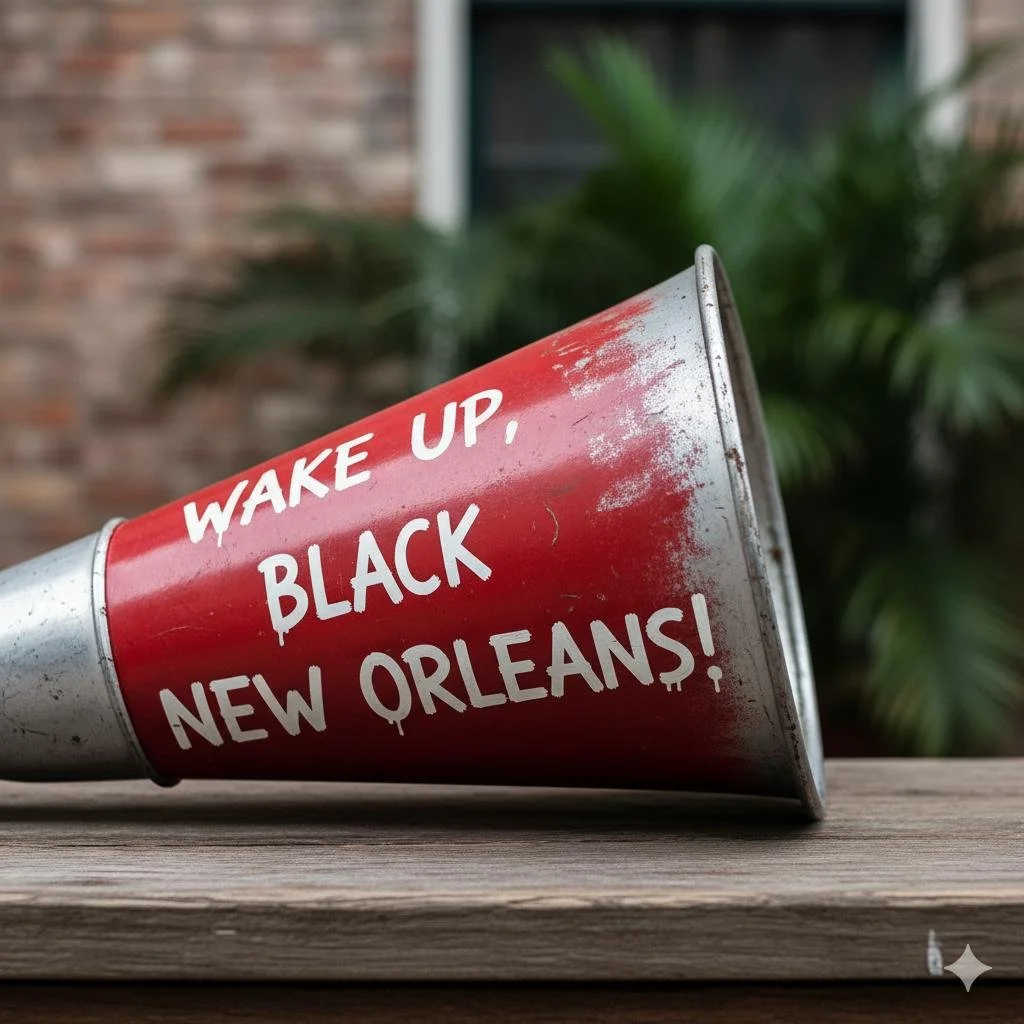Publisher’s Notes: The Future of Black New Orleans is at Stake
by beverly s. mckenna
co-publisher & executive editor
The New Orleans Tribune
It is with deep consternation, perplexity, and downright angst that we at The New Orleans Tribune observe a trend in this mayoral election, and you must have noticed it, too: a significant number of prominent African American "leaders" and preachers — people whose voices carry weight in our communities—have chosen to publicly support the white candidate over two fully capable, fully qualified Black candidates. That choice may rest on the notion that “we must do something different.” But we. at The Tribune, refuse to accept, and I implore others to refuse, the implicit suggestion that a white candidate must somehow be superior, that Black leadership is inadequate, or that our Black politicians are inevitably flawed. Such reasoning is not only misguided—it is dangerous.
It is particularly confounding to us because nearly all, if not all, of these "leaders" have depended on and looked to the strength and voice of the Black community at one time or another to support them in their personal journeys and climbs. In the 40 years that we have published The New Orleans Tribune, we cannot think of one instance when we have seen such wholesale abandonment of our community and its best interests. Is there something that is escaping us? Something we don't know. Come on people, what's going on? And when we consider what is happening at the national level, these actions are even more disconcerting.
Let us be clear: supporting a white candidate is not inherently wrong. But when that support comes while diminishing or dismissing competent Black alternatives, or when it rests on the premise that only a white person can deliver what we need—then we betray both logic and the legacy of struggle that demands we lift up our own. The subtext of “maybe we need something different” must not become a covert indictment of Black leadership itself. To suggest that “different must equal white” is an insult to centuries of Black excellence, courage, and resilience.
What is worse is that many of those urging this path are not inviting critical consideration—they are asking for blind allegiance that will only serve their narrow interests and selfish reasons. They say, “Follow me, trust me, even if it means crossing lines of race.” But trust must be earned, not demanded. We cannot allow opportunism dressed up as innovation to erode the legitimacy of Black candidates, especially when the alternative is yet another cycle of external control masquerading as progress.
We must demand better from our leaders—white or Black—and from ourselves. We must ask: is the candidate’s vision rooted in community, equity, and accountability? Are they willing to empower institutions long neglected? Do they understand the cultural, historic, and structural challenges of our city? Are they committed to Black neighborhoods, to youth, to justice, to reparative approaches, not just symbolic gestures?
Because what is at stake is enormous. This race is not about personalities or ego; it is about the very future of New Orleans. If we allow complacency, disillusionment, or misdirected gestures to suppress our collective will, we will inherit another generation of harm: unchecked gentrification, unbalanced development, educational neglect, widening inequality, and diminished authority of Black citizens in their own city. We cannot let that happen.
This is a clarion call: Go to the polls. Mobilize your family and neighbors. If we stay home, or if we allow our voices to be diluted by decisions we did not make, the consequences will reverberate across decades. Do not allow this election to echo the disastrous turnout of Louisiana’s last gubernatorial campaign, wherein turnout among Black voters plummeted, especially in New Orleans. In Orleans Parish, just 27 percent of registered voters turned out in that primary—down sharply from prior contests.
This is not merely a statistic—it is a warning. Our power in this city flows through each ballot. If our communities do not show up, we lose our seat at the table. We invite marginalization, cynicism, and gross neglect.
If the mayoralty is to reflect the aspirations of Black New Orleans, it must be borne of Black engagement: the mighty mobilization of voters, from Central City to the 9th Ward, from Gentilly to the West Bank. Let no one tell you that your vote is symbolic—that it doesn’t matter. It matters now more than ever.
This moment demands moral clarity. It demands courage. It demands that we reject narratives that pit “change” against Black leadership, that masquerades as progress while undermining self-determination. We reject the silence of complicity. We reject the passivity of accepting lesser stakes. And we assert with conviction that our city—its soul, its dignity, and its future—must be shaped by those who share its history and its promise.
So I call on every reader of The Tribune: decide now. Examine the records, the pledges, the integrity, the vision. Commit to one thing above all: show up. Let this election be the moment when Black New Orleans makes itself felt, not by quiet acquiescence, but by a rising chorus of ballots. Let it be the moment we protect Black leadership—not as an orthodoxy, but as a principle rooted in accountability, respect, and the long arc of struggle.
We are the stewards of hope here. Let us vote like our city depends on it—because it does.


